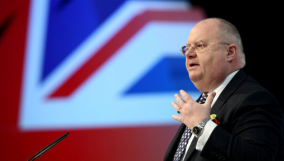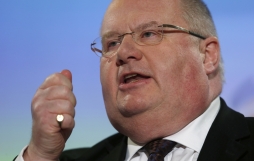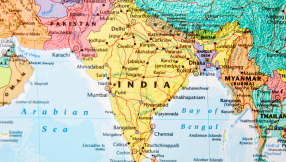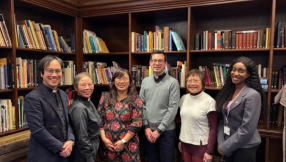A bill confirming that town and parish councils are able to hold prayers as part of their meetings passed its third reading in the House of Lords yesterday and will become law.
The Local Government (Religious etc Observances) Bill was put forwarded following action by a humanist councillor in Bideford, Clive Bone, who objected to the council's long-standing practice of saying prayers before its meetings. Mr Bone, who has since died, won his case, but an intervention by Communities Secretary Eric Pickles changed the law to allow prayers to continue if councils wished it.
The new law extends the powers of various local authorities to include religious observances at its meetings and makes it clear that they can support or be represented at religious events.
In response to an objection by Baroness Turner, who said: "A number of us who are secularists feel that our views have been somewhat bypassed," Lord Cormac, who moved the bill, described it as "the most gentle and permissive of bills". "It gives to local authorities and to other elected authorities the opportunity—if they wish—to decide, by a majority, to begin their meetings with prayers or silent contemplation. There
is absolutely no compulsion on them to do it, nor is there any obligation that the prayers should be of a particular or specific faith or as to whether the reflections should be eligious or secular. I honestly think that these points are met in this very permissive bill."
Colin Hart, director of the Christian Institute, told Christian Today that the law was a welcome symbol that faith was not banned from the public square. He said that it was not discriminatory against people with no faith.
"It has never been the case that if someone doesn't pray, they can't be a councillor," he said. "They just don't have to turn up for it. It is clearly separate from the business."
However, a spokesman for the National Secular Society said that the passing of the legislation was "no victory for democracy or religious freedom".
"By allowing council officials or religious cliques, even if they are in the majority, to impose their acts of worship on to the formal business of council meetings, this legislation has the potential do much more harm than good," said Stephen Evans. "Council chambers are not places of worship and it's hard to see how religious freedom is served by allowing councils to summon councillors to prayer.
"Thankfully, the passing of the Act is unlikely to give rise to any significant number of councils introducing acts of worship – and we expect most local authorities will continue to treat their employees' and councillors' personal beliefs as a private matter rather than official council business."















